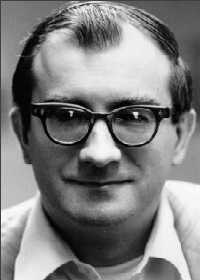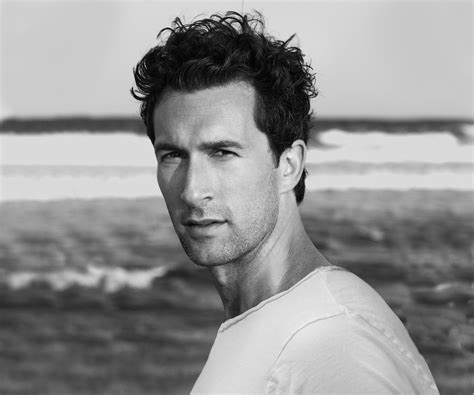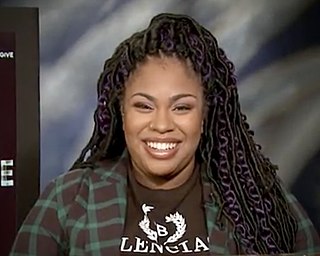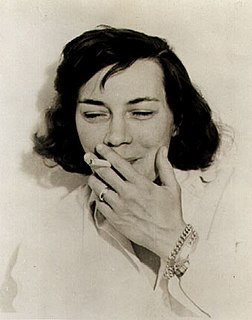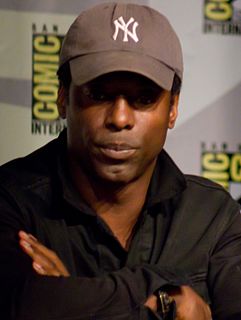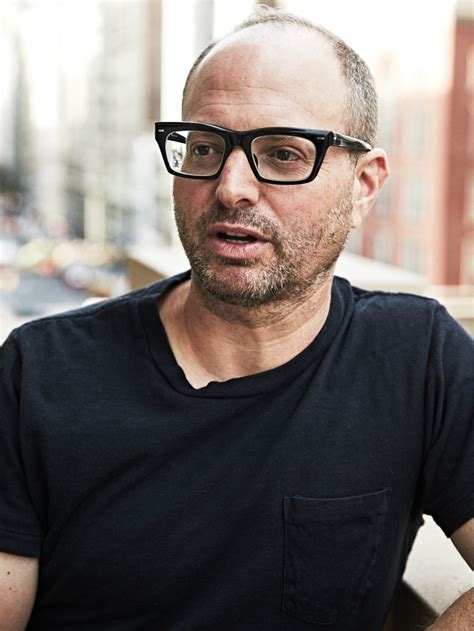A Quote by Edmar Mednis
Bobby Fischer started off each game with a great advantage: after the opening he had used less time than his opponent and thus had more time available later on. The major reason why he never had serious time pressure was that his rapid opening play simply left sufficient time for the middlegame.
Related Quotes
At the time when I was in college, Oscar Grant had just lost his life in Oakland, Calif. He was an unarmed young black male who had a record. And at the time when his death was making headlines, more people were talking about what he had done in his past than the fact that he unjustly lost his life.
Have you ever noticed that Jesus is never recorded as taking a holiday? He retired for the purposes of his mission, not from it. He was never destroyed by his work; he was always on top of it. He moved among people as the master of every situation. He was busier than anyone; the multitudes were always at him, yet he had time, for everything and everyone. He was never hurried, or harassed, or too busy. He had complete supremacy over time; he never let it dictate to him. He talked of my time; my hour. He knew exactly when the moment had come for doing something and when it had not.
And then there was Tick. Brave little Tick, who had flown into the faces of an army of rats to save his baby sister. Tick - who never spoke much. Tick - who shared her food. Tick - who was after all just a roach. Just a roach who had given all the time she had left so that Boots could have more. Gregor pressed Boots's fingers against his lips and felt scalding tears begin to slide down his cheeks. He hadn't cried, not the whole time he'd been down here, and there had been plenty of bad stuff. But somehow Tick's sacrifice had crushed whatever thin shell remained between him and sorrow.
The only reason I acted in school was because of the community. I was in the chorus of every play and was never the lead other than one time, but to me it was about the community. I was an English major and my whole goal was to be an English teacher and was lucky enough to get into the playwriting group. The whole experience I had at Brown was eye opening and the most mind-bending experience.
They were not friends. They didn't know each other. It struck Tom like a horrible truth, true for all time, true for the people he had known in the past and for those he would know in the future: each had stood and would stand before him, and he would know time and time again that he would never know them, and the worst was that there would always be the illusion, for a time, that he did know them, and that he and they were completely in harmony and alike. For an instant the wordless shock of his realization seemed more than he could bear.
Westley closed his eyes. There was pain coming and he had to be ready for it. He had to prepare his brain, he had to get his mind controlled and safe from their efforts, so that they could not break him. He would not let them break him. He would hold together against anything and all. If only they gave him sufficient time to make ready, he knew he could defeat pain. It turned out they gave him sufficient time (it was months before the Machine was ready). But they broke him anyway.
Titled players appeared to be trotting out game after game in which the same old hoary opening sequences, memorized out to fifteen, twenty, or even more moves, were repeated endlessly. True novelties were becoming scarcer, and sometimes these 'opening' novelties didn't appear until well into the middlegame. (A master-level friend once proudly showed me a novelty he'd discovered at move twenty-seven of a very well-trodden chess opening, and it's said that even as far back as the 1950's Mikhail Botvinnik had some openings memorised past the thirtieth move).
The whole time I was on 'Grey's,' I'm still reconciling myself to my 11-year-old son, because he never saw me during that time. By the time he got up, he'd see a dent in his pillow, but by the time I got home, he was already asleep. So for three years, he had a daddy that he never saw because I had to work.
I just spent a lot of time on 'ER' for that eight years. I also started working when I was 16, so by the time I left 'ER,' I was 40 years old, I had this incredible experience, my wife had this great company, we had four kids, it was like, 'Let's go to New York and live for a while and make that the priority.'
The ocean was one of the greatest things he had ever seen in his life—bigger and deeper than anything he had imagined. It changed its color and shape and expression according to time and place and weather. It aroused a deep sadness in his heart, and at the same time it brought his heart peace and comfort.
